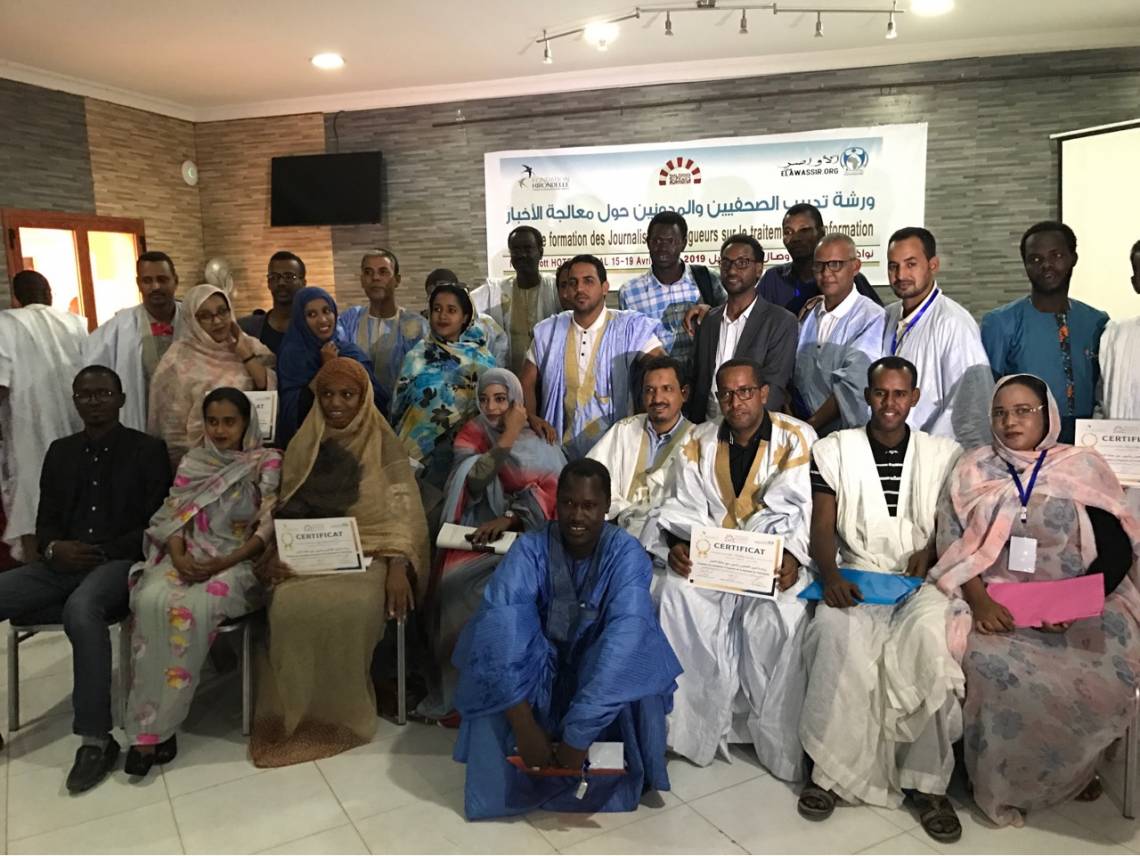Michel Beuret, Editorial Manager of Fondation Hirondelle, led a training session on the ethical and professional foundations of journalism from the 15th to the 19th of April in Nouakchott, to identify and defuse false information circulating on social networks. Participants: 30 journalists from different communities in the country and from audio-visual, written and web media.
The first round of the presidential election in Mauritania will take place on the 22nd of June in a climate of social, political and economic tensions mixed with ethnic-religious ulterior motives. Mauritania has experienced a sharp decline in press freedom since 2014, according to Reporters Without Borders, despite the fact the country had made progress in this area in previous years. Its media is poorly developed, poorly qualified and largely composed of bloggers without professional references.
Fondation Hirondelle has carried out a media training course for 30 Mauritanian journalists and bloggers as part of a partnership with the Fondation Cordoue de Genève (which aims to “promote exchanges between the cultures and civilizations of various communities”). This workshop, organized in Nouakchott in mid-April, was led by Michel Beuret, Editorial Manager of Fondation Hirondelle, and funded by the Kingdom of the Netherlands.
This training had to be inclusive: 30 journalists from all media (public and private, radio, TV, press, internet), women and men embodying the country’s cultural diversity: White Moors, Black Moors and Mauritanian Negroes (Soninké, Peuls, Wolofs, etc.) participated. The 30 participants were selected individually on the basis of a preliminary mission that led to some 60 interviews in January 2019.
The Nouakchott training focused on the work of the sources, the journalist’s editorial responsibility, his ethics and several practical exercises on misinformation in the age of social networks, the risk of passing it on and the professional way to avoid or defuse it.
As some of the participants spoke only in Arabic and others only in French (or in a vernacular language), the training required the use of permanent simultaneous translation.
In the participants’ opinion, this translation had the other advantage of allowing them to get to know each other better but also to get involved: Habib Sal representing Mauritanian Public Radio: “We really learned a lot with this training (…). Before, often, we used to do workshops. People participated on the first say and the room remained empty until the last day when people came back to get certificates. But this time, people stayed for the whole 5 days. This explains the importance of this workshop and the interest of the participants. It was extraordinary (…). At the end of this workshop, I think we are better equipped and we have more arguments to exercise the profession as a journalist.”
Testimony of one of the journalists from the training to be seen here:




